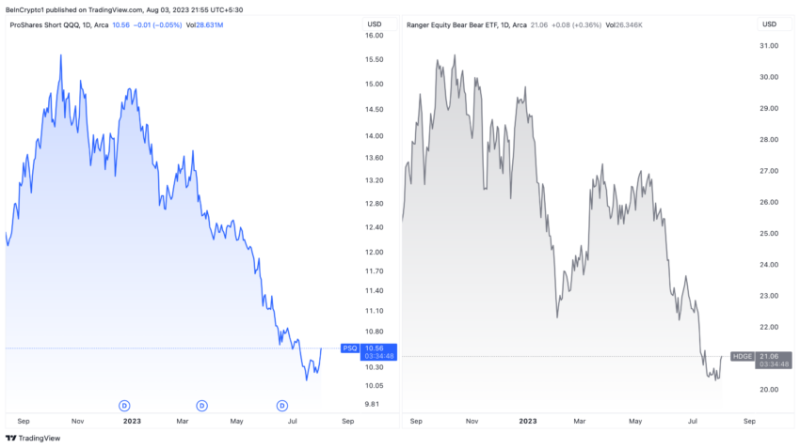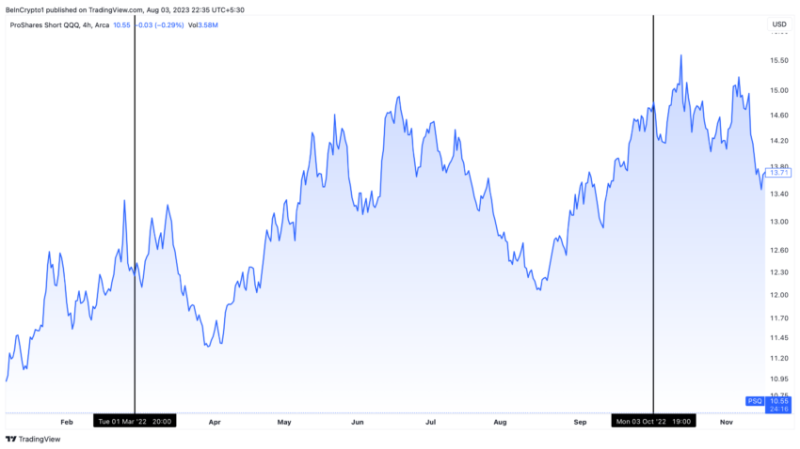
The integrity of Senator Carper’s trading decisions has come under scrutiny, leaving many concerned about the American financial system.
US Senator Bets Against the US Economy
In a startling disclosure, Senator Carper revealed a $30,000 buy into the inverse exchange-traded fund (ETF) ProShares Short QQQ (PSQ). This ETF aims to achieve daily investment outcomes that mirror the opposite of the Nasdaq-100 index’s daily results.
Carper’s investment is essentially a gamble against the market, with Carper hoping for a downturn. Likewise, records show that his wife, Martha Ann Stacy, purchased up to $95,000 shares of Ranger Equity Bear (HDGE) ETF and PSQ last month.
These funds are also designed to profit when stocks decline, effectively hedging against economic downturns.

PSQ and HDGE Performance. Source: TradingView
While these actions in isolation could be viewed as a savvy investor hedging his bets, Carper’s position in the Senate, and his previously stated views on the economy, make this a contentious issue.
Just in May, the Senator lauded the resilience of the US economy. He attributed it to the leadership of President Joe Biden, with whom he shares a close personal and professional relationship.
“Thanks to POTUS, our economy is resilient and growing stronger every day. With over 250,000 jobs added to the market in April and our lowest unemployment rate in over 50 years, we are continuing to support working families across Delaware and the country,” said Carper.
However, Senator Carper’s financial moves suggest a lack of confidence in the same economy he publicly praises.
US Government Downgraded to AA+
Fitch’s recent downgrading of the US government’s credit rating – the first such move since 1994 – adds more weight to the country’s economic future concerns.
According to Fitch, governance standards have consistently declined over the past two decades, particularly in fiscal and debt management, even with the bipartisan decision in June to postpone the debt ceiling until January 2025.
“The repeated debt-limit political standoffs and last-minute resolutions have eroded confidence in fiscal management. In addition, the government lacks a medium-term fiscal framework, unlike most peers, and has a complex budgeting process,” reads the report.
This raises the question of whether Senator Carper’s investment is a prescient anticipation of economic turbulence or a contradictory position for a man of his stature.
Ironically, records show that this is not the first time Carper has bets against the US economy. In March 2022, the US Senator invested around $100,000 in the same ETF, securing a 30% gain after selling it in October 2022.

PSQ Performance Between March and October 2022. Source: TradingView
While Carper’s office maintains that a financial adviser independently carries out these transactions, the optics are undeniably challenging.

